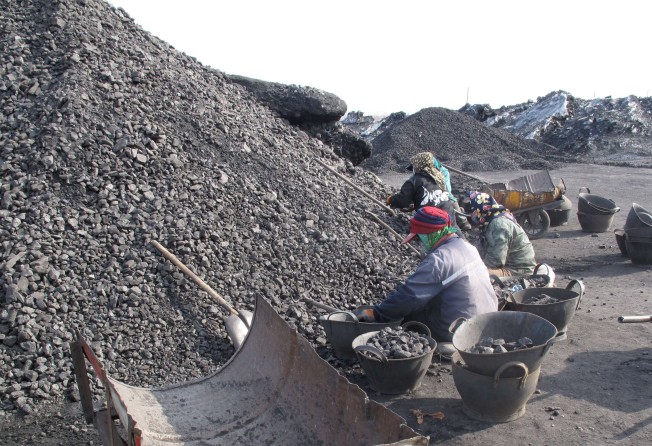China’s bid to cut production overcapacity in heavy industries ‘losing steam’, survey suggests
Production strong in sectors such as coal and steel as prices of commodities and raw materials rise amid shortages of supply and higher demand

China’s measures to cut industrial production overcapacity slowed significantly in the third quarter of the year as firms boosted output to meet increased demand for goods and raw materials, according to survey released by the Cheung Kong Graduate School of Business.
The quarterly survey, based on a sample of about 2,000 industrial firms with annual sales revenue of five million yuan (HK$5.5 million), found that more than half of China’s industries and provinces reported overcapacity, but the determination to shut down excess production capacity quickly fizzled away when there were prospects of turning a profit.
“Production has stabilised due to an expansion in consumer goods, but the weak demand remains a big challenge to the industrial economy,” said Professor Gan Jie, who was in charge of the survey. “There is still a long way to go before overcapacity is fully absorbed.”
The survey defined “overcapacity” as when 10 per cent of the organisations polled claimed excess capacity of more than 20 per cent in their sector or province.
The finding echoed longstanding questions over the effectiveness of the government-led campaign to reduce overcapacity in industries such as steel and coal, a top economic goal set for this year.
The State Council said last week that it has “basically completed” this year’s reduction targets, including 45 million tonnes of steel capacity and 280 million tonnes of coal capacity.
However, it also announced investigations into illegal steel capacity expansions in Hebei and Jiangsu provinces.
Many analysts have cast doubt on the measures to reduce overcapacity, suggesting production plants laid idle could simply come back online when prices rebound.
Growth in China’s economy is widely projected to slow further next year from the current rate of 6.7 per cent.
Fixed-asset investment, a key support for economic growth, faces downward pressure after a new round of curbs to cool the property market in October and amid the slow rate of private investment.
The survey found oil processing, coking coal production and mineral mining were the industries with the most severe overcapacity. The Xinjiang region and Shanxi and Yunnan provinces were the worst affected areas, it said.
Signs of remaining overcapacity can be seen from higher production and reduced job cuts.
More than 70 per cent of firms polled said they have run their capacity at more than 80 per cent. Meanwhile, job cuts were estimated to have fallen to about 700,000 in the third quarter from 2.5 million in the second.
“Despite recent price rebounds, gross profit of such overcapacity industries like steel and cement were actually deteriorating on rising costs, including labour, financing and raw material input,” said Gao Zhanjun, a managing director of CITIC Securities, at a briefing on the survey.
“Industries with overcapacity need to further reduce their financial leverage, while high productivity sectors, the future growth engines, need more financing support,” Gao added.
Reducing levels of debt has becoming a priority for the government next year given the recent concerns over financial risk and asset bubbles in the economy.
The cabinet is pushing hard for the introduction of debt-to-equity swap plans in some industries to lower the level of cash they owe.